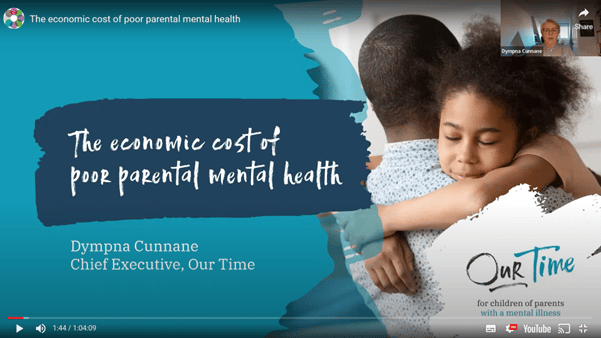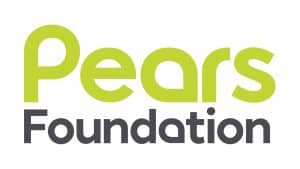On Wednesday 16th November we brought together members from the Children and Young People’s Mental Health Coalition (CYPMHC) to look at the impact of parental mental illness on children and young people.
Parental mental illness affects as many as 1 in 3 children and can have both immediate and long-term impacts for them. Add to that the potential long-term cost to the economy (which our Pro Bono Economics report found could be as high as £1.9billion for one cohort of children) and there is even more cause to ensure these young people are not forgotten.
Out of sight, out of mind?
However, at Our Time, we are finding that the issue of parental mental illness is not being considered both within mental health policy developments and in practice. By way of example, earlier this year Our Time reviewed the website of every mental health trust in the country to see how many contained information about support for children of parents with a mental illness.
We looked for references to young carers as many of these children will be young carers because of either providing physical or emotional support or having to take on responsibilities such as caring for younger siblings when their parent’s mental health is poor.
Nearly 60% of trust websites contained no information whatsoever about support for young carers or their legal rights.
An opportunity for change
With the development of a 10-year Mental Health Plan, the proposed overhaul of the Mental Health Act 1983 and the roll-out of Family Hubs, all of these developments give us the mechanisms to transform the identification and support for children whose parents have a mental illness.
But if we are not careful, we run the risk of missing a once in a generation opportunity, leaving thousands of children and young people unidentified and unsupported, at the expense of their health, wellbeing and quality of life.
Take the Mental Health Bill as an example. When someone is detained under the Mental Health Act, it is usually because their mental health is at crisis point. There is no doubt that the mental health crisis can have a huge impact on that person. But equally, the impact on any children of that person can be just as significant.
Put yourself into the shoes of Adam (names changed to protect identities) who is 10 years old and had the police turn up at his door to speak to his dad because they are needing to find their mum. Or Ellie who is 14 and has seen their mum in hospital for more than half of the year. Ellie keeps hearing people talking about her mum being sectioned, but no-one ever sought to explain to Ellie what this actually means.
And this issue extends beyond children living with a parent whose mental health is at crisis point. Like Kyle who at 12 years old worried that him getting into trouble at school was to blame for his mum’s bi-polar getting worse.
These would be challenging issues for any adult to deal with, let alone children and young people who are trying to juggle school and simply being a young person.
Time to make a difference
2023 will soon be upon us and it will mark a decade since the Care Quality Commission and Ofsted jointly called for better data about parents with mental health difficulties and for adult services to play a greater role in identifying children of these parents.
With the current focus on mental health, and the Mental Health Bill and 10-year mental health plan not yet finalised, the opportunity is there to make a real difference in the identification and support for children of parents with mental illness.
If we want to avoid continually adding to the pressure on our mental health services, we cannot miss this opportunity to follow the lead of countries such as the Netherlands and Norway and ensure that children of parents with mental illness are identified and get the support that they need. These children may often be out of sight for health and social care professionals working with adults with a mental illness, but there can be no excuse for them to be out of mind.
WATCH A RECORDING OF THE WEBINAR
Author: Andy McGowan
Andy McGowan is the Public Affairs and Policy Advisor for the charity Our Time, which is the only UK charity for children of parents with a mental illness. He is also the head of engagement at the carer’s charity Caring Together, which supports unpaid carers of all ages in Cambridgeshire, Peterborough and Norfolk. In March 2022, Andy launched the Young Carers Alliance which is a network of over 130 organisations and 350 individuals from across the UK and internationally, all committed to improve the identification and support for young carers, young adult carers and their families (www.youngcarersalliance.org)






